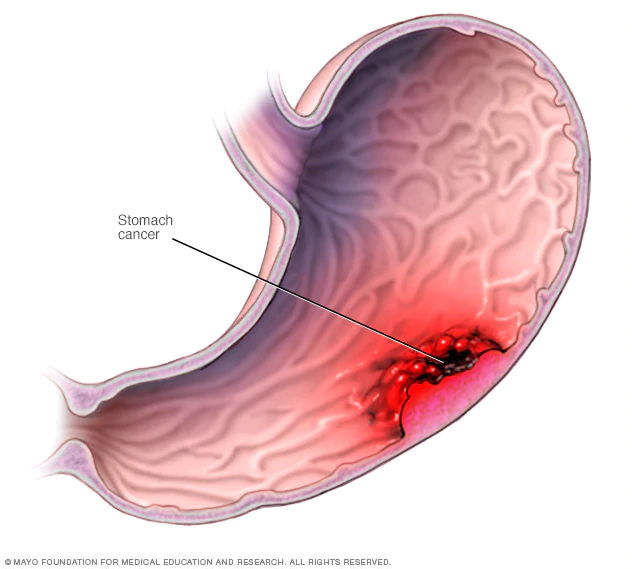Stomach Cancer Treatment in Lebanon
Search and Compare the Best Clinics and Doctors at the Lowest Prices for Stomach Cancer Treatment in Lebanon

Find the best clinics for Stomach Cancer Treatment in Lebanon
No pricing info available
Ukraine offers the best prices Worldwide
Price: $ 2,487
From 103 verified reviews
Nada Nassar, 19 August 2020
The best place to be
From 38 verified reviews
Joyce Jabbour, 19 May 2020
It is a very nice hospital, very clean, the service is great, personnel is very friendly and professional. Great hospital! Well done. Thank you for being the best hospital in Lebanon
- Home
- Lebanon
WHY US?
At Medijump, we're making medical easy. You can search, compare, discuss, and book your medical all in one place. We open the door to the best medical providers worldwide, saving you time and energy along the way, and it's all for FREE, no hidden fees, and no price markups guaranteed. So what are you waiting for?

Free

Best Price

Widest Selection

Risk-Free
What you need to know about Stomach Cancer Treatment in Lebanon

If you have been diagnosed with stomach cancer, your doctor will discuss your treatment options with you. Your treatment options depend on several factors, including your overall health, the stage of your cancer, your age, and your personal preference. Stomach cancer may be treated with surgery, chemotherapy, radiation therapy, targeted therapy, or immunotherapy.
What does a Stomach Cancer Treatment Procedure Involve?
Surgery for stomach cancer is performed to remove all of the stomach cancer and some of the surrounding healthy tissue, your doctor may remove early-stage tumors from the lining of your stomach, remove a portion of your stomach (subtotal gastrectomy), remove your entire stomach (total gastrectomy), and remove lymph nodes to look for cancer. All of these surgeries are performed under general anesthetic. With chemotherapy, a drug is used to kill cancer cells, while with radiation therapy, high-powered energy beams are used to kill cancer. Your doctor may also recommend targeted therapy or immunotherapy, which uses targeted drugs or your own immune system to fight cancer.
How Long Should I Stay in Lebanon for a Stomach Cancer Treatment Procedure?
After surgery, you will need to stay in the hospital for three to eight days and stay in Lebanon for seven to fourteen additional days after you are discharged. If you undergo immunotherapy, chemotherapy, radiation therapy, or targeted therapy, your length of stay depends on how many cycles are needed for your specific case.
What's the Recovery Time for Stomach Cancer Treatment Procedures in Lebanon?
The total recovery time until you can return to your normal routine may take several months, but you should be able to return to work within 4-6 weeks. If you only have therapy, you should be able to return to most of your activities when you do not experience any symptoms that interfere with your ability to perform your duties.
What sort of Aftercare is Required for Stomach Cancer Treatment Procedures in Lebanon?
You need to adjust to a new diet after the surgery so make sure to talk to a dietitian about what to eat. Regular exercise is really important to keep your body healthy, you can start walking as soon as you can. Make sure to schedule follow-up checkups with your doctor to monitor your condition and you may do this with your local doctor at home or your doctor in Lebanon.
What's the Success Rate of Stomach Cancer Treatment Procedures in Lebanon?
Treatment for stomach cancer is known to be effective, but the success rate varies depending on how early the treatment is performed as well as the stage of cancer. The side effects and risks of stomach cancer treatment, which include infection, bleeding, damage to other organs, problems with anesthetic, hair loss, and fatigue.
Are there Alternatives to Stomach Cancer Treatment Procedures in Lebanon?
If you prefer not to undergo treatment or too frail for any type of treatment, you should consult with your doctor and cancer team on the best alternative for you. In some cases, surgery to relieve only the signs and symptoms is recommended.
What Should You Expect Before and After the Procedure
Stomach cancer causes symptoms such as heartburn, nausea, pain, vomiting, and fatigue that may interfere with your daily life. It is also dangerous and it can spread to other organs. After the surgery, you should no longer experience any symptoms and you can return to your normal life.
Whilst the information presented here has been accurately sourced and verified by a medical professional for its accuracy, it is still advised to consult with your doctor before pursuing a medical treatment at one of the listed medical providers
No Time?
Tell us what you're looking for and we'll reachout to the top clinics all at once
Enquire Now

Popular Procedures in Lebanon
Prices Start From $1,314

Prices Start From $512

Recommended Medical Centers in Lebanon for Stomach Cancer Treatment

- Interpreter services
- Translation service
- Religious facilities
- Medical records transfer
- Medical travel insurance
- Health insurance coordination
- TV in the room
- Safe in the room
- Phone in the room
- Private rooms for patients available

- Interpreter services
- Translation service
- Religious facilities
- Medical records transfer
- Medical travel insurance
- Health insurance coordination
- TV in the room
- Safe in the room
- Phone in the room
- Private rooms for patients available

- Interpreter services
- Translation service
- Religious facilities
- Medical records transfer
- Medical travel insurance
- Health insurance coordination
- TV in the room
- Safe in the room
- Phone in the room
- Private rooms for patients available

- Interpreter services
- Translation service
- Religious facilities
- Medical records transfer
- Medical travel insurance
- Health insurance coordination
- TV in the room
- Safe in the room
- Phone in the room
- Private rooms for patients available
Stomach Cancer Treatment in and around Lebanon
Lebanon, a country on the eastern shore of the Mediterranean Sea, is one of the smallest sovereign states. The country boasts a fascinating mixture of the Middle East and the West, Christianity, and Islam, and tradition and modernity. It has everything from golden beaches and World Heritage Sites to energetic nightlife and delicious cuisine. Among other countries in the Middle East, Lebanon appears to be one of the most popular medical tourism destinations. Over 10% of the tourists visiting the country, particularly from neighboring countries, come to receive medical care. Many hospitals and clinics in the country are accredited to the ISO:9000 standard and offer world-class specialist services in spine treatment, orthopedics, organ transplant, and other complex surgeries, as well as advanced cancer treatments. Cosmetic and reconstructive surgery are also popular.
Popular Parts of Lebanon
Beirut, the capital and largest city of Lebanon, is filled with historic landmarks and natural wonders. The most famous attractions in the city are the National Museum of Beirut, the Corniche and Pigeon Rocks, Sursock Museum, and Mohammed Al Amin Mosque. Many people also come to Lebanon to visit the port town of Sidon. Once a rich and thriving Phoenician city, it is dotted with historical monuments and ancient remnants, particularly in its Old City. Other popular cities include Tripoly, Baalbek, Byblos, and Tyre.
Weather and Climate in Lebanon
Lebanon has four seasons: winter (December to March), spring (April to May), summer (June to September), and autumn (October to November). Winter is the rainy season with high precipitation levels and cool temperatures. It is snowy in the mountains, but in some places, such as Beirut, it just rains during this season. Summer is hot, sunny, and dry, and can get very humid in cities located close to the sea. In the summer, the average temperatures are around 28°C to 30°C. Spring and autumn are both warm and pleasant.
Getting around in Lebanon
The main international airport where visitors fly into and out of Lebanon is Beirut–Rafic Hariri International Airport, which is the only operational commercial airport in the country. It serves international flights to numerous major cities across Europe and the Middle East, including Moscow, Paris, London, and Dubai. Given the small size of the country, there are no internal flights. Intercity buses and minibus are available and have an extensive network, especially in coastal areas. The best way to get around the country is by hiring a car (with a driver) or by using intercity taxis.
Tourist Visas in Lebanon
All visitors need to obtain a visa to enter and stay in Lebanon unless they come from one of the seven visa-exempt countries (including Kuwait, Bahrain, Qatar, Saudi Arabia, Oman, the United Arab Emirates, and Jordan). Citizens of 81 countries, including all EU countries, Australia, China, Canada, and the United States, are eligible for a visa on arrival for a maximum stay of 30 days. A conditional visa on arrival is available for citizens of 15 countries, including Algeria, Libya, Iraq, and Yemen.
Additional Information
- Local Currency: Lebanese Pound (LBP) is the official currency in Lebanon. 1 USD is equivalent to around 1,507 LBP. US dollars and the euro is widely accepted as well.
- Money & Payments: ATMs are widely available in many places around Beirut and other large cities. Many ATMs dispense both US dollars and Lebanese pounds. Credit cards, particularly Visa and MasterCard, are accepted at most major establishments. Tipping can be expected, usually around 10% to 15% of the bill.
- Local Language: Arabic is the official language in Lebanon. English and French are widely spoken as well, and many Lebanese can speak at least two to three languages.
- Local Culture and Religion: Islam (around 60% of the population) and Christianity (around 34%) are the primary religions in Lebanon. About 5% of Lebanese practice the Druze faith, while other religions are practiced by the remaining 1% of the population.
- Public holidays: New Year’s Day, Christmas Day, Eid al-Fitr, Eid al-Adha, All Saints’ Day, Resistance and Liberation Day, as well as Independence Day are some of the more important holidays in Lebanon.
Popular Searches
- Plastic Surgery in Thailand
- Dental Implants in Thailand
- Hair Transplant in Thailand
- Breast Augmentation Thailand
- Gastric Sleeve in Thailand
- Gender Reassignment Surgery in Thailand
- Laser Hair Removal in Bangkok
- Botox in Bangkok
- Dermatology in Bangkok
- Breast Augmentation in Bangkok
- Coolsculpting in Bangkok
- Veneers in Turkey
- Hair Transplant in Turkey
- Rhinoplasty in Turkey
- Stem Cell Therapy in Mexico
- Rhinoplasty in Mexico
- Liposuction in Mexico
- Coolsculpting in Tijuana
- Rhinoplasty in Korea
- Scar Removal in Korea
- Gastric Sleeve in Turkey
- Bone Marrow Transplant in India
- Invisalign in Malaysia
- Plastic Surgery in the Dominican Republic
- Tummy Tuck in the Dominican Republic
- Plastic and Cosmetic Surgery in Poland
- Rhinoplasty in Poland
- Hair Implant in Poland
- Dental Implants in Poland
- IVF in Turkey

